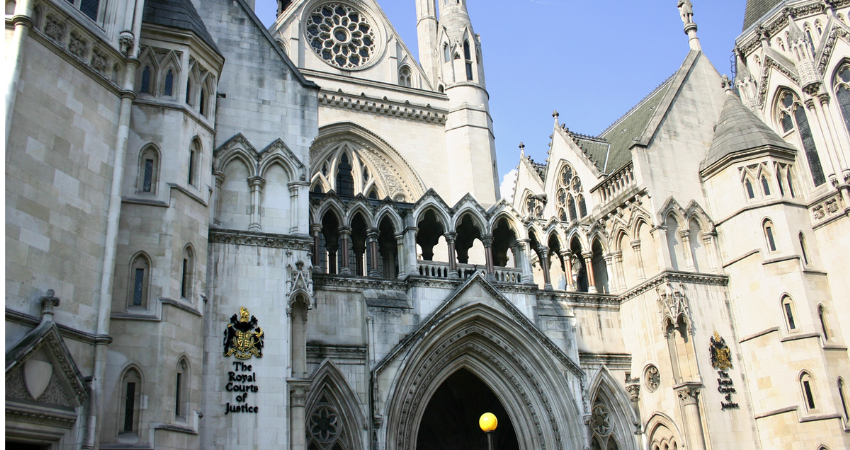The Offshore Litigation Blog and our contributors
The Harneys Offshore Litigation Blog is a unique online hub for news and insights about offshore litigation in jurisdictions including the British Virgin Islands, the Cayman Islands, and Bermuda. We are the authoritative resource for recent cases, jurisdictional news, court lists, interviews with the judiciary and even some tips on island life.
${totalItems} results
${customFilterHeading} Showing ${showingItems} of ${totalItems} results ${searchTerm}
${facet.Name} (${facet.TotalResults})

Successful recovery of €9 million through garnishee proceedings in Cyprus
Harneys secured a significant recovery of approximately €9 million for our client through garnishee (attachment of debt) proceedings against two major banks in Cyprus.
13 Oct 2025

Fraud unravels everything – how the BVI Courts can assist
Fraudsters sometimes choose offshore vehicles in their illegal schemes under the mistaken belief that the misappropriated assets will not be found or that the victims of fraud will not be able to identify the fraudsters.
18 Sep 2025

Trust, title and tokens: implications of Singapore High Court's decision in Re Taylor for distribution of unclaimed cryptoassets in liquidation
The rise of digital assets and cryptocurrency has transformed financial markets, but it has also raised novel legal and practical challenges, particularly in the context of corporate insolvency.
10 Sep 2025

Trust restored - dishonest assistant made to pay for breach of constructive trust
In Stevens v Hotel Portfolio II UK Ltd (HPII), a judgment handed down by the Supreme Court on 23 July 2025, Lord Briggs gave the leading judgment (with only Lord Burrows dissenting), providing a clear statement of the law on compensation for breach of constructive trust by a trustee and a dishonest assistant.
12 Aug 2025

Lessons from the Evergrande saga: asset disclosure in insolvency proceedings
In a recent decision involving the China Evergrande Group, the Hong Kong Court of First Instance reaffirmed the policing provisions of disclosure orders under Mareva/freezing injunctions.
18 Jun 2025

Jurisdictional issues in crypto currency disputes (Part 1): service out of the jurisdiction
The jurisdiction of the Cayman and BVI courts to adjudicate claims depends upon whether the defendant(s) to those claims can lawfully be served with originating process.
21 May 2025

Identifying wrongdoers in the crypto space: the Norwich Pharmacal and Bankers Trust jurisdictions
The anonymity which digital currencies and online trading more generally permit is one of the factors which makes the digital space so attractive to those seeking to perpetrate fraud. The claims that have come before the courts of England and Wales involving digital assets have almost exclusively been fraud cases. In these cases, the courts have generally taken a pragmatic approach, permitting such actions to be begun against the unidentified fraudsters as “persons unknown” and granting freezing and disclosure orders to assist in securing and recovering (so far as possible) the proceeds of the fraud.
28 Apr 2025

Digital asset recovery: what are my options?
Perhaps inevitably given the exponential growth in the value of the crypto market in recent years, courts all over the world are now tasked with resolving an increasing number of crypto-related disputes. Within the context of crypto recovery claims, this has invariably required the court to grapple with the underlying blockchain technologies.
15 Apr 2025

Supreme Court construes the meaning of section 423 of the English Insolvency Act 1986
On 19 February 2025, the Supreme Court handed down judgment in El-Husseiny v Invest Bank PSC. The case concerned the interpretation of section 423 of the English Insolvency Act 1986 which provides remedies to creditors in circumstances where a debtor has taken steps to defeat or prejudice their claims by entering into a transaction at an undervalue.
26 Feb 2025

“Good arguable case” – Threshold for granting freezing injunctions clarified
In Dos Santos v Unitel SA, the English Court of Appeal clarified the threshold test of a “good arguable case” for granting worldwide freezing injunctions should be equivalent to that of a “serious issue to be tried” as applied in other types of interim injunctions, in accordance with the principles laid down in American Cyanamid.
23 Jan 2025

Plead discreditable conduct properly
The Commercial Court in England recently dismissed the Claimant bank's claim of a transaction to defraud creditors because the Bank had not properly pleaded the purpose for which it contended that the Defendant businessman had transferred assets to his family: Invest Bank PSC v El-Husseini.
04 Dec 2024

No time to spy: Shehabi v Bahrain [2024] EWCA Civ 1158
In a recent ruling at the intersection of cybersecurity, human rights, and sovereign immunity, the English Court of Appeal has determined that Bahrain cannot claim state immunity for remotely hacking the computers of pro-democracy activists in London, setting a precedent with implications far beyond espionage cases.
02 Dec 2024

